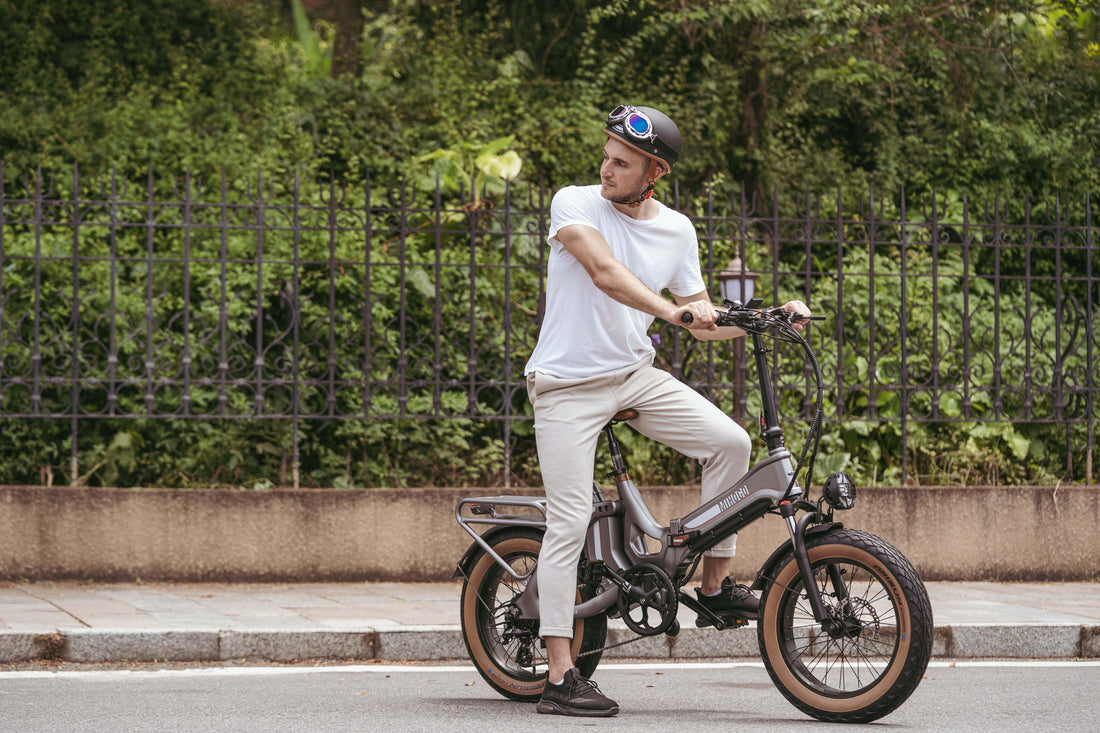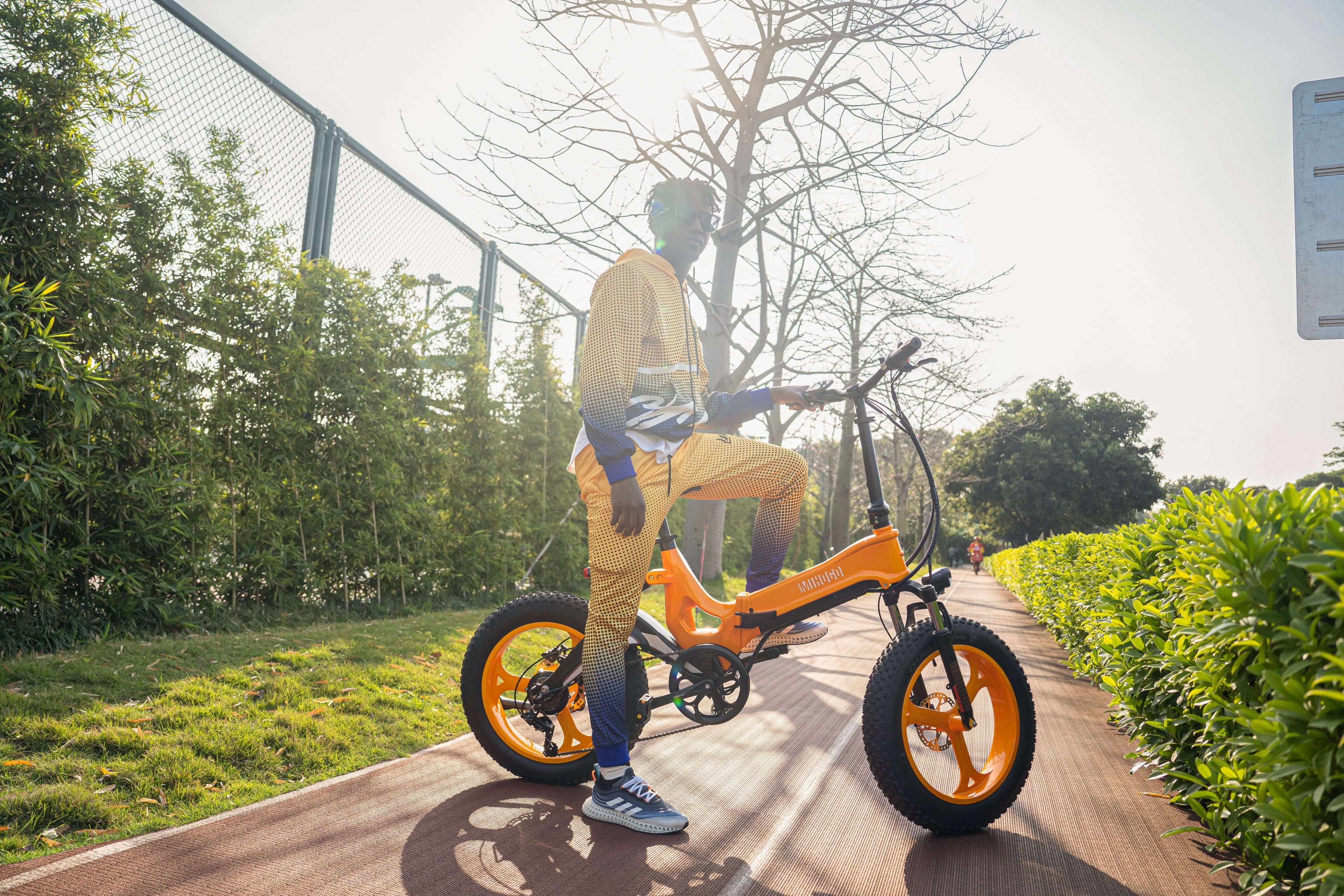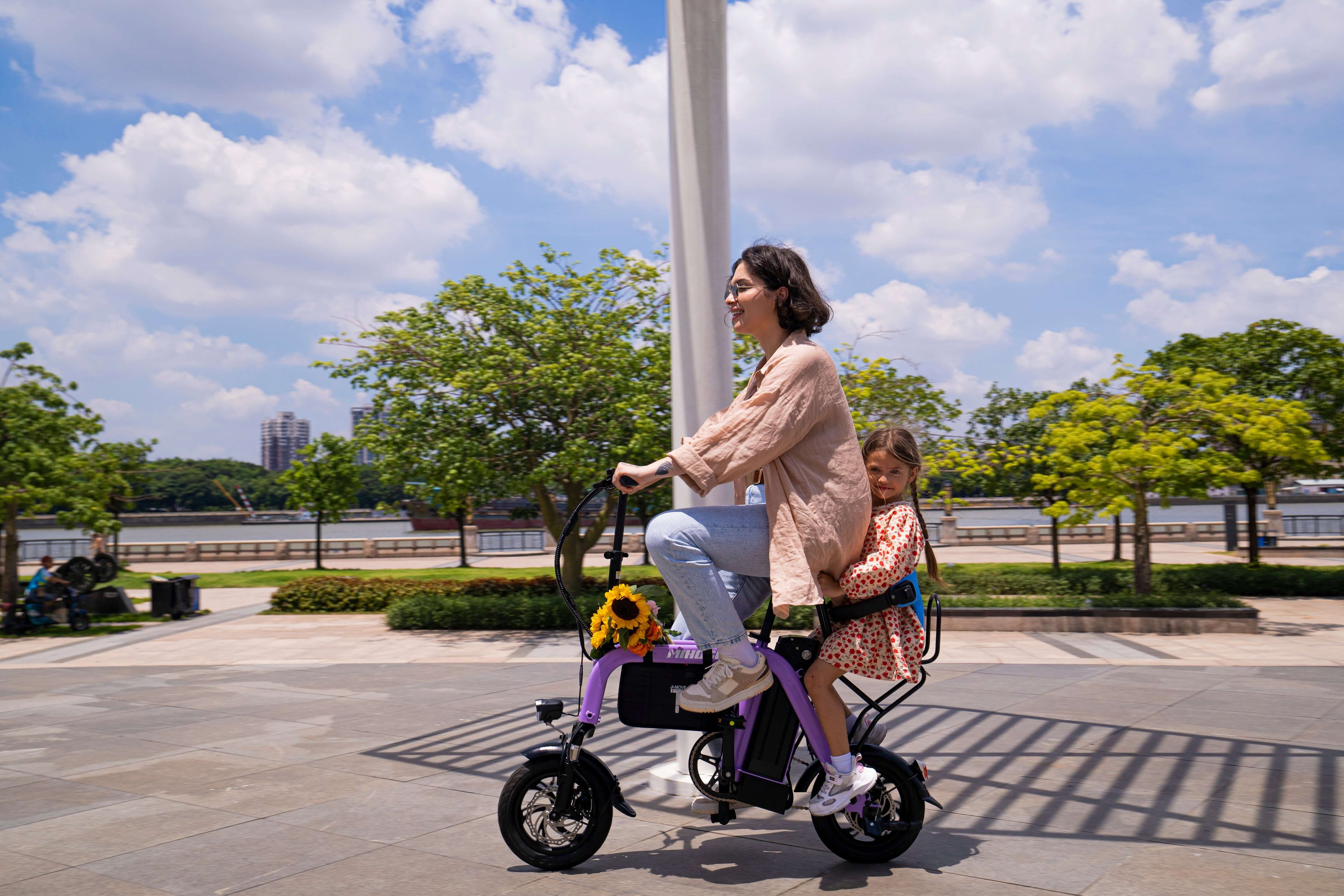Why Choose Mihogo E-Bikes for Desert Adventures
The harsh desert environment demands equipment that can withstand extreme conditions. Mihogo's lineup offers exceptional solutions for desert riders:
Mihogo Air750 Max - With its carbon fiber construction and 750W motor, this premium model delivers 121 miles of range, perfect for long desert expeditions where charging opportunities are scarce.
Mihogo ONE Utility E-Bike - The utility design and impressive 167-mile range make it ideal for desert survival scenarios, offering the longest range in our collection for extended adventures.
Mihogo RX 2.4 - This compact folding commuter provides 40 miles of range with easy transport, perfect for desert basecamp exploration.
Mihogo Mini - Lightweight and efficient, the Mini's 62-mile range and compact design make it perfect for quick desert reconnaissance missions.
Understanding E-Bike Battery Performance in Extreme Heat
Both Ebike motors and batteries perform best in terms of range and delivered power and wear slower when external temperatures range between 17 Celsius or 63 F and 23 Celsius or 73 Fahrenheit. Desert temperatures often exceed these optimal ranges, creating unique challenges.
Heat-Related Performance Issues
When temperatures soar above 100°F (38°C), your Mihogo e-bike may experience:
- Reduced Battery Capacity: In extreme heat, your battery's capacity can decrease, reducing your riding range
- Motor Efficiency Loss: Overheated motors work harder and consume more power
- Protective Shutdowns: Like a lot of electronics, including most cell phones, your battery will protect itself from overheating by shutting down when it's too hot
Battery Protection Strategies
Protecting your Mihogo e-bike's battery system requires proactive thermal management:
Pre-Ride Preparation
- Store your bike in climate-controlled environments when possible
- Avoid storing your battery in places that get very hot, such as a garage on a hot day
- Charge batteries in cool, shaded areas before your desert adventure
During Your Ride
- Using the maximum power assist mode creates more work for the motor and battery, leading to increased heat generation
- Use lower assistance levels on flat terrain to reduce heat buildup
- Take frequent breaks in shaded areas to allow cooling
Desert Survival Essentials for E-Bike Adventures
Water Management and Hydration
Aim to drink at least 1 liter of water per hour while hiking, adjusting your intake based on factors such as temperature, activity level, and sweat rate. For e-bike desert expeditions, this translates to:
- Carry 2-3 gallons of water for day-long adventures
- Install multiple water bottle holders on your Mihogo frame
- Use insulated bottles to keep water cool
- Monitor urine color for hydration assessment
Heat Protection Strategies
Clothing and Gear
- Wear light-colored, loose-fitting clothes that cover your arms and legs
- Use wide-brimmed hats and UV-protective sunglasses
- Apply SPF 50+ sunscreen to all exposed skin
Timing Your Rides Avoid unnecessary movement during peak heat hours (10 AM – 4 PM). Plan your Mihogo adventures for:
- Early morning (5 AM - 8 AM)
- Late afternoon/evening (5 PM - sunset)
- Night riding with proper lighting systems
Emergency Preparedness
Desert environments are unforgiving. Essential safety equipment includes:
Navigation and Communication
- GPS devices with offline maps
- Satellite communicators for emergency contact
- Physical maps and compass as backup
- Emergency signaling devices
Shelter and Protection
- Emergency bivvy or space blanket
- Portable shade structures
- First aid kit with heat illness treatment supplies
Advanced Desert E-Biking Techniques
Route Planning for Extreme Conditions
Terrain Considerations
- The desert floor absorbs and radiates extreme heat, often 30°F (17°C) hotter than the air temperature
- Plan routes with natural shade opportunities
- Identify water sources and emergency shelters
- Check weather conditions before departure
Range Management Your Mihogo's range decreases in extreme heat. Plan accordingly:
- Reduce expected range by 20-30% in high temperatures
- Identify charging opportunities along extended routes
- Carry portable solar chargers for multi-day expeditions
Wildlife and Environmental Hazards
Desert environments present unique dangers beyond heat:
Wildlife Awareness
- Be alert at night, as some desert creatures are more active in the dark
- Shake out gear before use to check for scorpions or spiders
- Maintain distance from all wildlife encounters
Weather Hazards One of the biggest—and least expected—desert dangers is flash flooding. Monitor weather conditions and:
- Avoid dry washes and low-lying areas during storms
- Seek higher ground if thunder is heard
- Carry emergency shelter for sudden weather changes
Maintaining Your Mihogo in Desert Conditions
Daily Maintenance Protocols
Pre-Ride Inspection
- Check tire pressure (heat expands air, increasing pressure)
- Inspect battery connections for corrosion
- Verify all bolts are properly tightened
Post-Ride Care
- After riding in salty or dusty conditions, wipe down your battery with a damp cloth (not soaked) and fresh water to remove any salt or debris
- Clean air vents and cooling areas
- Store in shaded, ventilated areas
Long-Term Desert Storage
For extended desert expeditions:
- Store the battery with a charge between 40% and 60%
- Use battery covers to protect from dust and UV exposure
- Maintain optimal storage temperatures when possible
Recovery and Emergency Procedures
Heat-Related Emergencies
Recognizing Heat Exhaustion Early warning signs include:
- Excessive fatigue or weakness
- Dizziness or confusion
- Nausea or vomiting
- Decreased sweating despite high temperatures
Emergency Response
- Move to shade immediately
- Remove excess clothing
- Apply cool water to pulse points
- Contact emergency services via satellite communicator
Battery Emergency Procedures
Overheating Shutdown If your Mihogo battery shuts down due to heat:
- Take the battery to an indoor environment, ideally one that's between 50 °F–77 °F, for roughly one hour
- Never attempt to cool rapidly with ice or cold water
- Allow natural cooling before attempting restart
Planning Your Desert E-Bike Adventure
Essential Pre-Trip Checklist
Equipment Verification
- Full battery charge and backup power sources
- Tire condition and proper inflation
- Emergency repair kit and tools
- Communication devices tested and charged
Route Intelligence
- Study topographical maps and identify challenges
- Research local regulations and land use restrictions
- Share detailed itinerary with emergency contacts
- Verify rescue coordination procedures
Weather Monitoring
- Check 7-day forecasts and heat advisories
- Monitor wind patterns and dust storm predictions
- Plan alternative routes for severe weather
Building Desert E-Biking Skills
Start with shorter expeditions to build experience:
- Practice heat management techniques in controlled environments
- Develop navigation skills with GPS and traditional methods
- Learn basic bike maintenance and emergency repairs
- Build physical conditioning gradually
Conclusion: Mastering Desert E-Biking with Mihogo
Desert e-biking with Mihogo represents the pinnacle of adventure cycling, combining cutting-edge technology with the raw beauty of extreme environments. Success depends on understanding your equipment's limitations, respecting the harsh conditions, and maintaining constant vigilance for safety.
Your Mihogo e-bike is engineered to handle challenging conditions, but extreme desert heat requires proactive management of both rider and equipment. From the Air750 Max's extended range capability to the Mini's portable convenience, each model offers unique advantages for desert exploration.
Remember: The most important survival tip is one you can follow before you even step foot into the desert: Tell someone where you're going. Combined with proper preparation, quality equipment, and respect for the environment, your desert e-biking adventures with Mihogo will create memories that last a lifetime.
Whether you're planning a sunrise ride through Joshua Tree or a multi-day expedition across the Sonoran Desert, your Mihogo e-bike is ready for the challenge. Embrace the adventure, respect the environment, and ride safely into the extraordinary world of desert e-biking.
Ready to start your desert adventure? Explore the complete Mihogo electric bike collection and find the perfect model for your extreme heat expeditions.








